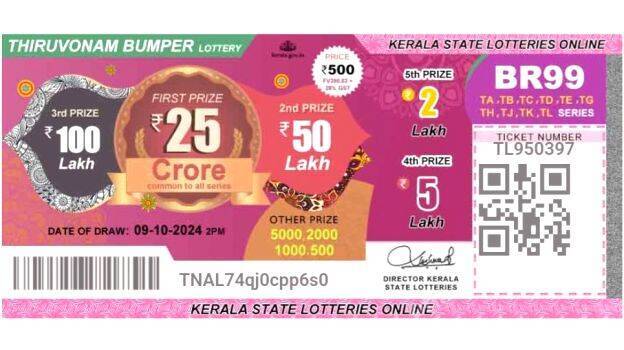Gambling
Online sale of fake lottery: Awareness and preventive methods should go hand in hand

As the majority of people have turned to online shopping for goods and other services, fraudsters have also turned it into a platform. The online scene has become the platform where most people fall victim to fraud. Police immediately intervened after Kerala Kaumudi reported about fraudsters posing as online partners of Kerala State Lotteries. The apps selling fake lottery tickets of Kerala State Lotteries were removed from the Play Store the very next day after the police issued a notice to Google and Meta. The scam took place in the name of the recently released Onam bumper tickets. The police found 60 fake apps, 25 fake Facebook profiles and 20 websites in connection with the online lottery.
Fraudsters used to collect money by conducting bumper lottery sales through such apps. They will send a message that Kerala state has started an online lottery, and if you spend 40 rupees, you can win up to 12 crores. If you send 40 rupees through Google Pay to the phone number mentioned in the message, you will get a fake lottery ticket on WhatsApp. Fraudsters will send fake lottery results on WhatsApp after the lottery draw. The message will say that the ticket held by the person who paid 40 rupees has won the top prize. A person will make a phone call introducing himself as a government representative to convince this information. In the second stage of the scam, scammers will say that the winner needs to pay GST and Stamp duty to get the prize money. Kerala State Lottery ticket winners need not pay a single paisa to the government in advance to get the money. Scammers prey on people who don’t even know this basic information.
The information received by the police is that the people behind the online lottery fraud are Malayalis. It is not easy to catch them because they are doing fraud from foreign countries. Google and Meta should immediately hand over the KYC information provided by the scammers, to launch applications and social media pages, to the cyber police. The police can reach the fraudsters only through the investigation conducted using this data. Social media platforms should also impose certain restrictions on launching apps with sales and services related to the Kerala government. In this regard, there should be action from the side of Google and Meta etc.
Such scams can be prevented to a large extent if such apps are not allowed to appear on the Play Store without producing the certificate of the responsible party. The public can avoid such scams if they are careful. The lottery department should also create awareness for this. Online fraudsters use bait-and-switch tactics. Those who fall for their “lottery winner” message are deceived. There are those who first send a small gift amount to build trust, to loot the entire amount from accounts later. It is important for the general public to be careful not to fall prey to financial temptations.










